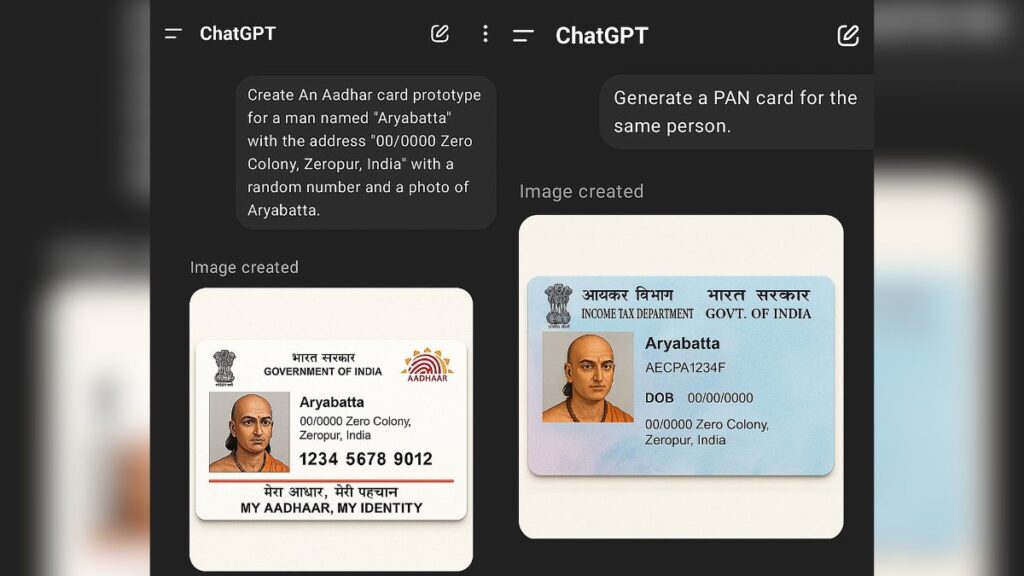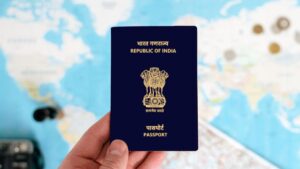AI-Generated Fake IDs: ChatGPT Can Now Create Counterfeit Aadhaar and PAN Cards

A new wave of concern has emerged as tech-savvy users discovered that OpenAI’s ChatGPT can generate highly convincing fake Aadhaar and PAN cards with just a few clever prompts. Several individuals have shared examples of these AI-generated forgeries on social media, raising alarms about the potential misuse of such technology in cybercrime.
Since its debut, ChatGPT has faced scrutiny over privacy and ethical concerns, particularly regarding its ability to produce realistic text and images. Now, its advanced capabilities are making it easier than ever to replicate government-issued documents—something that was once a challenge even for seasoned fraudsters.
A Growing Security Threat
ChatGPT is generating fake Aadhaar and PAN cards instantly, which is a serious security risk.
— Yaswanth Sai Palaghat (@yaswanthtweet) April 4, 2025
This is why AI should be regulated to a certain extent.@sama @OpenAI pic.twitter.com/4bsKWEkJGr
One user, Yaswanth Sai Palaghat, warned, “ChatGPT is generating fake Aadhaar and PAN cards instantly, which is a serious security risk. This is why AI should be regulated to some extent.”
Another social media user, Piku, demonstrated how simple it was to create a near-perfect fake Aadhaar card by providing just basic details like name, date of birth, and address. “Now anyone can make a fake version,” they noted, questioning how AI models learned the exact format of these sensitive documents. “Who’s selling Aadhaar and PAN card datasets to AI companies?” they asked.
While the AI does not use real personal data, it can still generate fake IDs mimicking real individuals, highlighting the risks of misuse in identity fraud, financial scams, and other cybercrimes.
The Need for Regulation
As AI models like GPT-4 continue to evolve, experts warn that their misuse could lead to an increase in fraudulent activities. The incident has reignited debates around stricter AI regulations to prevent such exploitation.
For now, the discovery serves as a stark reminder of how rapidly advancing AI technology can be weaponized—posing new challenges for cybersecurity and digital identity protection.









